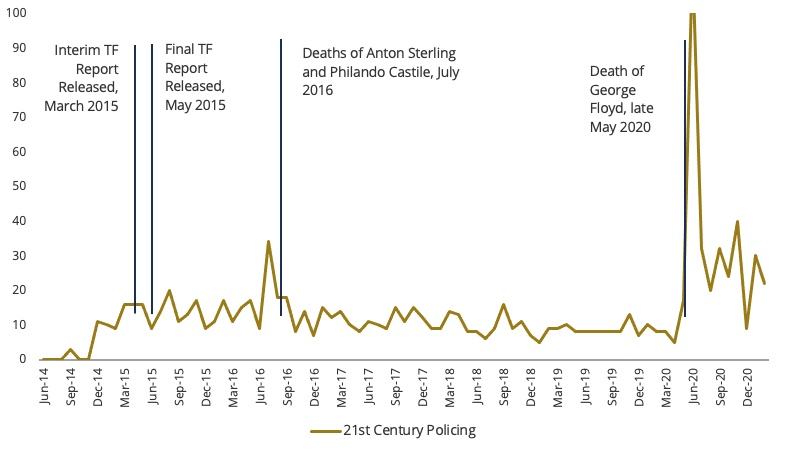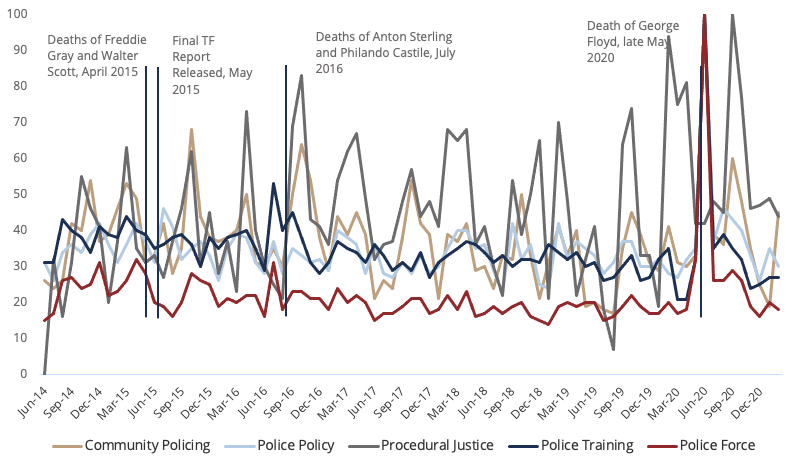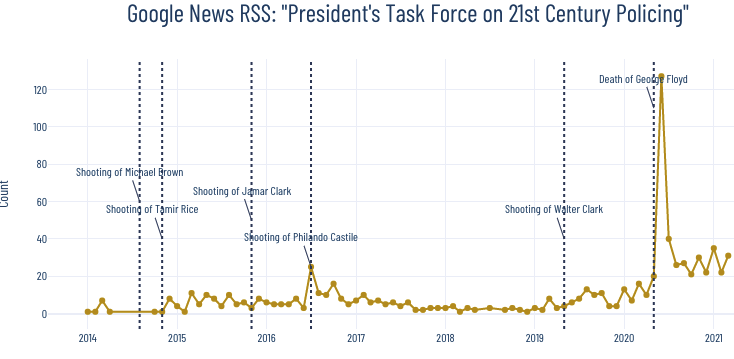Trends 1
Trends in Searches Performed Related to the Report
Google search trends provide an indication of web search traffic related to the Report recommendations. This scan is based on Google Trends, which provides analytics on searches made in Google search engines during specified time periods and from specified countries. Based on these analytics, the charts below show search interest relative to the highest point on the chart for the United States for the given time period. For example, a score of 100 is the peak popularity for the term while a score of 50 means that the term was half as popular relative to its peak, and a score of 0 means there was not enough data for this term.
Interest in the search term “21st Century Policing” spiked in March and May 2015, when the interim and final Reports were released. Interest spiked even higher in July 2016, with highly publicized discourse around the police shootings of Anton Sterling and Philando Castile, and President Obama called attention to the Task Force recommendations. This interest peaked in June 2020, after the death of George Floyd in late May 2020.
Figure 1

Figure 2

Trends 2
Media Review
Figure 3

Figure 4

Figure 5
Google News: Community Policing

Cover Photo Source: Boston Police Department Facebook
1. For more, see: https://support.google.com/trends/answer/4359550
2. https://www.nbcnews.com/news/us-news/police-killings-louisiana-minnesota-may-reflect-larger-struggle-reform-n605476
3. US. Department of Justice. (2017). Community policing week. https://www.justice.gov/archives/ag/community-policing-week. See also: https://www.justice.gov/opa/pr/department-justice-awards-119-million-hire-community-policing-officers
4. The media scan of the “President’s Task Force on 21st Century Policing” was conducted on July 9, 2020, and the scan of “21st Century Policing” and “Community Policing” were conducted on June 23, 2020. These searches were then redone on March 15, 2021 to bring the results up to date through the end of February 2021. Using Google News searches by month, these results do not include news stories deemed by Google to be duplicative, and results may include international news stories that include these search terms. Given the time period when this scan was conducted, it is important to recognize that older news results may have been lost and results are dependent on Google’s current search algorithms. Further, Google has begun limiting the number of search results which appear per domain to have more diversity in listings.